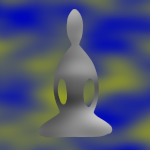January 28 – Poetry of Awakening
Dear Friends, In the penultimate track from this retreat, The Awakening Poem, DaRa reads a reflection which is sometimes attributed to by Sonny Carroll, although the wording on various websites isn’t always consistent. You can read a version fairly close to DaRa’s recitation here:https://www.michaelppowers.com/wisdom/awakening2.html The poem didn’t really resonate with me, though there are some useful life lessons… Read More »
